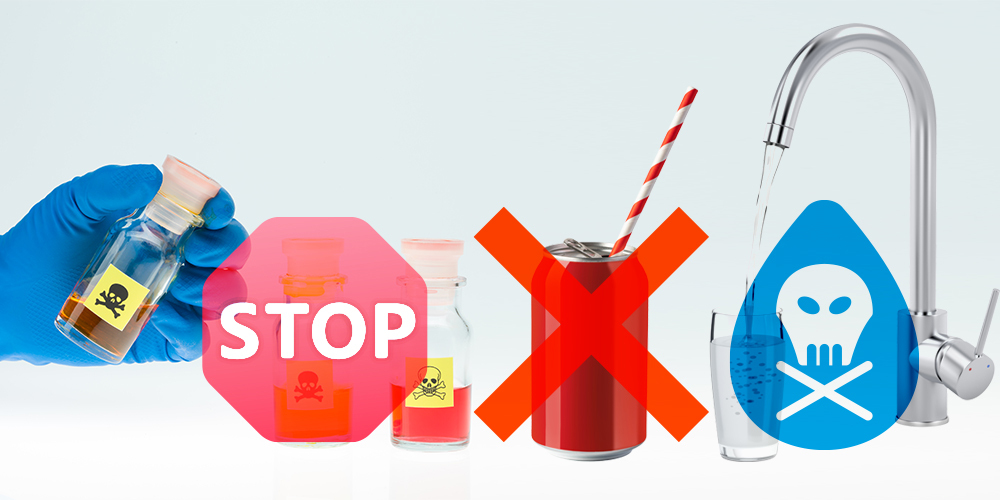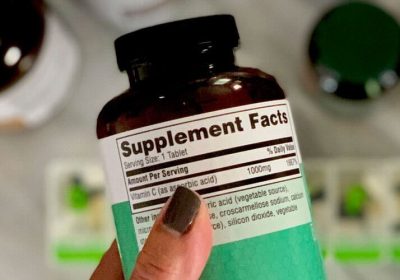A long-overdue shift in federal health policy is finally, for the most part, echoing ANH’s decades-long fight for transparency, nutrition, and upstream, root-cause medicine.
Listen to the audio version of this article:
THE TOPLINE
- In its first 100 days, the Make America Healthy Again (MAHA) agenda has taken bold steps, many of which are aligned with ANH-USA’s long-standing goals—banning toxic food dyes, reassessing fluoride in drinking water, and overhauling flawed dietary guidelines.
- The administration is focusing on underlying determinants of health by investigating environmental contributors to autism, reforming the GRAS food safety loophole, and challenging junk food subsidies in the SNAP program.
- While some areas like homeopathy and peptide access remain unresolved, ANH-USA sees the MAHA agenda as a major course correction that emphasizes transparency, scientific integrity, and nutrition-first health policy.
In just 100 days, the Make America Healthy Again (MAHA) agenda has launched an ambitious and unprecedented effort to tackle chronic disease, clean up our food system, and restore scientific integrity to public health policy. For those of us at ANH-USA who have long campaigned against synthetic food dyes, misguided dietary guidelines, and the neurotoxic effects of water fluoridation, the shift is both welcome and overdue. While there is much work ahead, the administration’s early actions mark a promising course correction, notwithstanding some bumps in the road.
Banning Toxic Food Dyes
One of the most notable achievements in the first 100 days is the FDA’s move to phase out all nine petroleum-based synthetic food dyes, including Red No. 40, Yellow No. 5, and Blue No. 1, all of which can be found in Froot Loops that kick off the day of tens of thousands of young Americans. Within months, the most dangerous dyes—Citrus Red No. 2 and Orange B—will be banned outright, with a full phase-out of the rest by the end of next year.
The continued presence of four petroleum-based azo and triphenylmethane dyes—Red 40, Yellow 5, Blue 1, and Yellow 6—in Kellogg’s US Froot Loops, starkly contrasting with their replacement by natural colors in the UK and European versions, serves as a damning indictment of Big Food’s opportunistic and profit-driven priorities. This decision, soon to be upended by HHS’ new policy, reveals a blatant disregard for the health and well-being of both children and adult consumers.
The belated US crackdown follows decades of science linking synthetic dyes to hyperactivity, behavioral issues, and inflammatory bowel diseases in children. European regulators initiated phase outs of these dyes and required warning labels years ago. Over half of US states are riding the MAHA wave, having introduced legislation to eliminate food dyes. The federal government has lagged behind for too long, allowing these petroleum-derived additives to proliferate in products marketed to kids. MAHA’s timeline for eliminating them marks a crucial public health win.
Fluoride on the Way Out
Another important move is the administration’s push to reverse decades of misguided fluoridation policy. Following a federal court’s landmark ruling that fluoride in drinking water poses an unreasonable risk to public health—especially to children’s developing brains—EPA Administrator Lee Zeldin has committed to reviewing the latest scientific evidence. Utah became the first state to ban supplemental fluoride, and Florida passed legislation to restrict its use.
ANH has been critical of water fluoridation for years. We applaud the administration’s willingness to reassess outdated, potentially harmful practices.
Fixing Dietary Guidelines
Secretary Kennedy is spearheading a much-needed overhaul of the USDA’s Dietary Guidelines, which have misled Americans on saturated fat, red meat, and ultraprocessed foods. In a meeting of President Trump’s cabinet, Secretary Kennedy charged that the guidelines are a product of the kind of politicized science that rated sugary cereals like Froot Loops higher than steak.
The new guidelines, due out before the end of summer, promise to be concise, evidence-based, and independent of corporate influence. Kennedy explicitly called out the “unreadable” 450-page document produced under the Biden administration, riddled with conflicts of interest and anti-animal-protein bias. ANH has long criticized these guidelines for their demonization of red meat, blanket promotion of seed oils, and failure to warn about the dangers of ultraprocessed food. A shift toward bioavailable nutrients and food quality over macronutrient dogma could finally help stem the chronic disease epidemic.
>>> Find out more about ANH’s take on the flawed EAT-Lancet Planetary Health Guidelines that continue to inform nutrition policy globally
Rethinking SNAP
Kennedy highlighted efforts to remove soda, candy, and other junk food from the Supplemental Nutrition Assistance Program (SNAP), an initiative ANH has supported in previous years. Several states have requested waivers to ban soda purchases with SNAP funds, and federal officials are backing them.
The beverage industry is attempting to reframe SNAP as a program about “access,” not “nutrition”—even though “Nutrition” is in the very name of the program—but the math speaks for itself: the rate of prediabetes among children is increasing at an alarming rate, from 11.6% in 1999 to 28.2% in 2018. As Secretary Kennedy noted, taxpayers are footing the bill both for the foods that drive disease and for the treatments that follow. That’s a recipe for economic and public health disaster.
Unpacking the Autism Crisis
In response to alarming CDC data showing autism now affects 1 in 31 children, Secretary Kennedy has launched a new initiative to investigate environmental contributors to the epidemic. An ambitious and hopeful NIH-backed study is now underway, with initial findings expected by September. We await these results with bated breath.
Overhauling GRAS

The Generally Recognized as Safe (GRAS) system—particularly the ability of companies to self-determine that ingredients are safe—has long served as a loophole for food companies to sneak bad ingredients into our food. Secretary Kennedy has called for a full review of the GRAS process and the elimination of the self-determined GRAS pathway.
ANH-USA agrees that the current system is broken—but we’ve also argued vociferously that justifying the elimination the self-affirmation route entirely could create bottlenecks and unintended consequences. That’s why we produced a white paper offering a more workable alternative: a tiered reform of the GRAS process that keeps in the good stuff and keeps out the bad stuff. We’re urging regulators to adopt our recommendations as they modernize the FDA’s approach to food safety.
Homeopathy
In October 2024, ANH and Meditrend filed a lawsuit against Robert M. Califf, the Commissioner of the FDA, and the US government, seeking a court ruling to reverse the FDA’s policy that threatens the future of homeopathic medicines.
We were hopeful that a RFK Jr.-led HHS and a Dr. Marty Makary-led FDA would be sympathetic to the case and to the idea that all Americans should have access to safe homeopathic medicines. Unfortunately, the government declined to settle our case. They may have other solutions in mind, but for now ANH is seeking other avenues of persuading federal officials to call off the attack on homeopathic medicines.
Peptides
Since 2023, when a group of peptides were placed on the FDA’s compounding “banned” list, we’ve been raising awareness and fighting for consumer access to these important medicines. Some of RFK’s early statements leading up to his confirmation as Health Secretary gave us hope. For example, an October 2024 post on X from RFK Jr. referenced the FDA’s “war on public health” and specifically mentioned peptides. We haven’t heard any more details about what, if anything, RFK Jr. plans to do to protect access. But rest assured, ANH will be progressing initiatives that aim to reverse the ban on compounded natural peptides, and we’ll keep you abreast of important updates.
The Road Ahead
At ANH-USA, we are encouraged by the administration’s willingness to challenge powerful interests and prioritize the health of American families. Of course, implementation and enforcement will be key. The food, chemical, and pharmaceutical lobbies will not back down without a fight. But for the first time in decades, federal health policy is moving in a direction that prioritizes underlying causes of disease over their symptoms, integrity over industry talking points, and real food over processed junk. That’s a sea-change compared with health policy of recent governments.
We’ll continue to monitor and engage with the MAHA agenda as it unfolds—and we’ll keep pushing to ensure that this momentum leads to lasting, systemic change.




Thank you for your ongoing dedication and information to improve healthy choices of food, supplements, and homeopathics in the U.S. As a Holistic Nutritionist and Homeopath, I work with people and animals (small and large, as we own several of each), we, as a community, deal with people everyday who are searching for good information to help them with their health. I never stop talking from the time I get to the store or office, until I leave. Ever since the Pandemic, people, now more than ever, are really shying away from the medical community. Their trust is gone in doctors, and they want to learn, read, and learn some more. I am also a cancer survivor (left Tonsil, Squamous cell). Had a horrible reaction to Dental Adhesive (UniCem Rely X) by 3M. Since I was a little girl, I have been anaphylactically allergic to fish – NOT SHELLFISH – but all fish with gills. In 2009, I had a porcelain dental bridge put in the upper front teeth, and was fine with the temporary adhesive – Durelon. Old school, mixed with a calcium-magnesium base and carboxylates. The new adhesives come in a syringe-type of administration, and contains zinc oxide and a yellow green colored adhesive. Guess what?? Four (4) days later, December 26th, I woke up completely swollen and in shock. I had no idea what it was. I almost died that morning. The day before was Christmas, and we were at my mothers, and had a good meal, and of course, no fish. Mom knows my history for gosh sake. After being rushed by Ambulance, and 1 Epi shot and steroids, I knew I came in contact with fish but did not know how. I said “oh it couldn’t be the dental glue.” Guess what, as I then went to a biological/holistic dentist 2 months later and had the bridge removed, come to find out 8 months after that, on a little informational sheet that sometimes comes underneath your food at a restaurant said: Did you know that since 2006, 75% of dental adhesives use FISH GILLS!!
Well, isn’t that special! Mystery solved. But I was so out of it for months, that in 2013, my left tonsil just could not detoxify it any longer. Dr. K, who was an integrative doctor, and an ENT, said you need your tonsils out Now! You have a cyst on the left tonsil. And yes, it was cancer squamous cell carcinoma Stage 1/2), and the whole explanation is in my pathology report. The Dentist, would have never known there was fish in that adhesive, and 3M should have been sued big time, but I didn’t have the energy for that. When asked on medical forms, list any allergies, I always say Deathly Allergic to Fish. Didn’t help with the dental glue though. How in the world would anyone have really known!! 300+ people have died supposedly from UniCem Rely. There are many people that are allergic to fish. 3M did get a letter – but to no avail. I was treated completely holistically for cancer, because i certainly would not burn my thyroid, parotid glands, and vocal chords with radiation. I speak for a living and still sing blues and rock n roll. No way. June 29th will be 12 years and I am a very strong survivor.! Thank you, D. DeMore, CCN, Hom.
So grateful for RFK.
I am grateful the president appointed him, even though he is from the opposing party. Quite remarkable.
All of our food and supplements are in plastic. Plastic is from oil. How can we survive?